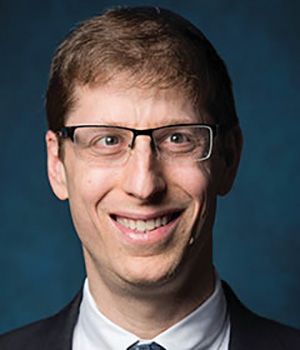
The seventh day of Adar is the anniversary of both the birth and passing of our greatest leader, Moshe Rabbeinu. We believe that Hashem Himself buried His loyal disciple, and thus the day has come to be associated with the observances and customs of traditional Jewish funerals. In many communities, the chevra kadisha observes a solemn fast on that day. At Mincha they recite penitential prayers and read a special fast-day Torah reading. Prayers are recited, asking that its efforts throughout the year to provide the most respectful treatment of the deceased prove acceptable in God’s eyes and that it bring them the honor that is due them.
More than 100 men and women gathered on the evening of Zayin Adar Bet, March 14, to honor the blessed work of the volunteers of the various chevra kadisha groups working out of Bergen County. After Mincha they gathered at Congregation Rinat Yisrael for the traditional festive dinner held after the fast. During the dinner, Rabbi Jeremy Wieder, rosh yeshiva at the Rabbi Isaac Elchanan Theological Seminary (RIETS) at Yeshiva University who holds the Gwendolyn and Joseph Straus Chair in Talmud, presented a fascinating shiur about identifying the time of demise of a person so that the laws of mourning can commence.
Ari Wartelsky, who heads the Congregation Bnai Yeshurun Men’s Chevra, welcomed the assembled and praised them for their continuing efforts in performing this “chesed shel emet,” genuine chesed. He pointed out that over the years, as we witness the tremendous growth of the local Jewish community, it is obvious that the need for the services of the chevra are growing exponentially. To address these needs, new ideas for more efficiency while maintaining the optimum level of compassion and kavod ha’met are up for discussion.
Micah Kaufman is an active member of Congregation Beth Aaron’s men’s chevra kadisha. Kaufman followed up on Wartelsky’s comments by pointing out that often a short window of time is available to the chevra to prepare the met, whether because a flight to Israel must be met or an early Shabbat or Yom Tov is impending. To address these time constraints, Kaufman proposed a WhatsApp group of Bergen County chevra members who will be notified immediately of such urgent situations so that they can jump in and help out if they are available. As of last Thursday, the WhatsApp group was functional and had already enrolled 35 men and 16 women.
Volunteers on the chevra kadisha can never predict when their services will be needed, day or night. Despite this unpredictability, new members are volunteering their services each year. According to Susan Fisch, who heads the women’s chevra at Congregation Beth Aaron, “Within the last year, eight under-40 women have joined the chevra, some with medical backgrounds who bring increased knowledge and awareness to the group.”
Long-time head of Beth Aaron’s men’s chevra kadisha, Shelley Mermelstein, shared, “The more taharot that I participate in make me realize how important it is to be involved in this selfless act, knowing that no recognition or publicity is expected. I thank Hashem for giving me the ability and opportunity to continue, although I do hope that we will not be called upon so often.”
Marcy Manas has been on the chevra kadisha for over 30 years, first at Rinat and then at Beth Aaron. Her husband Jeff is a chevra member as well. She explained, “I was initially drawn to the chevra for the mitzva. After my first experience, I lay awake for much of the night replaying it in my head as I was not sure that I would be doing it again. But I did. Years later, when I became a nurse, my medical background helped me while doing a tahara. Many times over the years I have been privileged to know the niftar, which made it even more meaningful for me. I would encourage women who may be considering joining a chevra to come in for a tahara and then follow up with a Q&A session with a member. There is no greater mitzva than kavod ha’met.”
Contact your local shul for information about volunteer opportunities for the chevra kadisha.
By Pearl Markovitz













